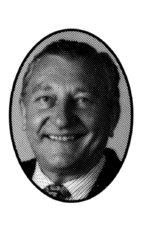The summary dismissal I was talking of was on the part of the government benches and not of the Chair. Incidentally it may be clear that I simply do not accept the last argument put forward either.
From day one of the 35th Parliament the Liberals have displayed a total lack of regard for the legitimate election process by blindly backing the Bloc candidates while under the watchful eye of the government whip. In election after election of committees we have seen Liberals dismiss qualified Reform candidates. This trend has continued into the second session.
For example, on February 29th the procedure and House affairs committee held its organizational meeting for the purpose of electing a chair and two vice-chairs. At that meeting my Reform colleagues and I again attempted to secure the opposition vice-chair position. During the election process last week not one Liberal member attempted to determine which candidate was best
qualified for the post. There were no questions about the candidates background or character, only the same tired arguments we have heard for more than two years.
The main argument put forward by the Liberal whip in defence of his unabashed support of separatists over federalists is one of tradition. According to the chief government whip it is parliamentary tradition for the opposition vice-chair to be filled by a member from the official opposition. To hear the government whip argue this point one would think the practice of electing an opposition vice-chair goes back hundreds of years. This is simply not the case.
Standing Order 106(2) governs the election process and in part states:
Each standing or special committee shall elect a Chairman and two Vice-Chairmen, of whom two shall be Members of the government party and the third a Member in opposition to the government.
No reference to official opposition; simply opposition. This standing order came into effect only in May of 1991, not five years ago. Later that month the committees were established and held elections for chairs and vice-chairs. During those elections a member of the NDP, the third party in the House at that time, was elected the vice-chair of the Standing Committee on Human Rights and the Status of Disabled Persons. A reading from the minutes of that meeting of May 29, 1991 will help illustrate my contention that this position is not reserved for the official opposition. Following the election of Dr. Bruce Halliday to the chair he stated:
I believe the new standing orders call for two Vice-Chairmen, one of whom shall be from an opposition party.
Notice the chair referred to an opposition party, not the official opposition.
I will quote from the same chair moments later: "We need a second vice-chairman who should be somebody from one of the opposition parties". The minutes of that meeting then indicate the member for Beaches-Woodbine, a representative from the third party, the NDP, was elected opposition vice-chair.
The minutes of this meeting clearly counter Liberal arguments. They demonstrate a precedent and show this practice has been in effect only since May of 1991. Further research shows that since this standing order was adopted in the third and last session of the 34th Parliament there was only one round of elections. That is because the committee chair and vice-chair appointments from the initial election of May 1991 were continued until the dissolution of that Parliament through a motion adopted by the House on September 21, 1992. The Concise Oxford Dictionary defines tradition as a custom, opinion or belief handed down to posterity; an established practice or custom. Given the evidence I have just laid out it is clear the Liberal claim of tradition is faulty at best. The only tradition is the one the Liberals are creating and have been creating these last couple of years, and it is a dangerous one.
I also believe it is important for unity minded Canadians to know which Liberals are supporting separatists over federalists. We will continue to keep count. At the meeting of procedure and House affairs last week, which I referred to earlier in my speech, the following government members rejected a federalist in favour of a separatists: the members for Glengarry-Prescott-Russell, Mississauga West, Kingston and the Islands, Ottawa Centre, Ottawa-Vanier, Ottawa West and Edmonton North. So listen in, Canadian public, to your members who are supporting a separatist vice-chair.
I will have to throw in another little bit to illustrate some of the intrigue that goes on in committees when they are electing chairs. Committees are masters of their own fate. For example, their members can agree to a secret ballot. We have proposed secret ballots in these committees to give the Liberal backbenchers who might be inclined to support a Reform vice-chair a chance to vote without incurring the wrath of their whip or their leader.
On every occasion we have proposed a secret ballot it has been rejected and the whip has put his firm hand on the Liberals saying no secret ballot.
What we are talking about is democracy, our ability as an opposition party to function properly within the committees of the House. We are being frustrated in them and we resent it.
I move:
That the motion before the House proposed by the government be amended by deleting all the words after the words "March 1, 1996" and substituting the following: "be not now concurred in, but that it be recommended to the Standing Committee on Procedure and House Affairs".

